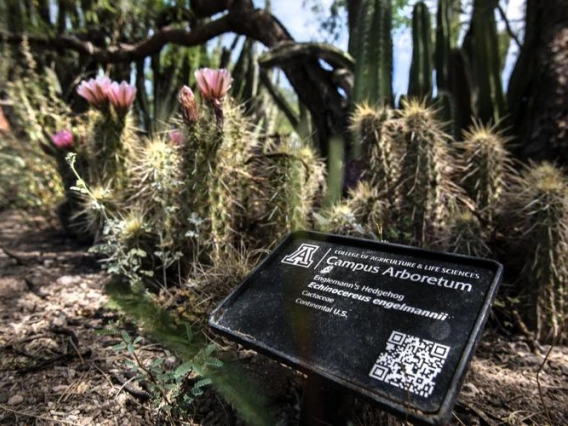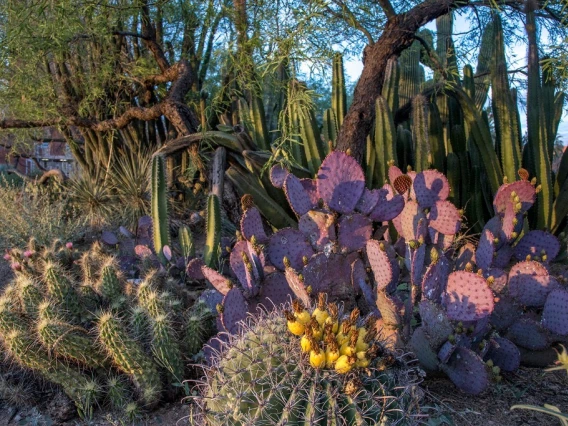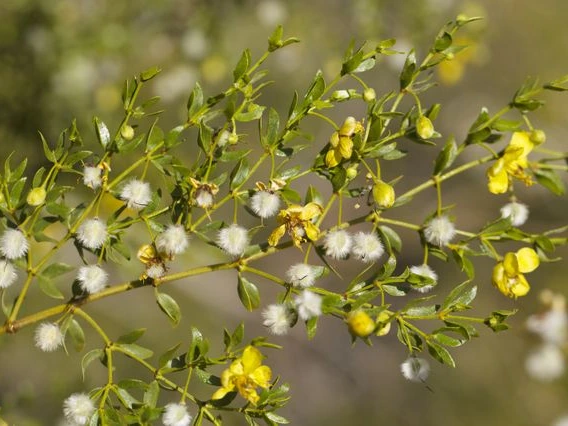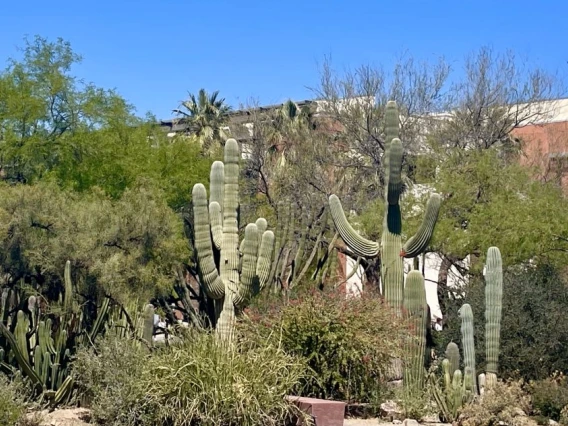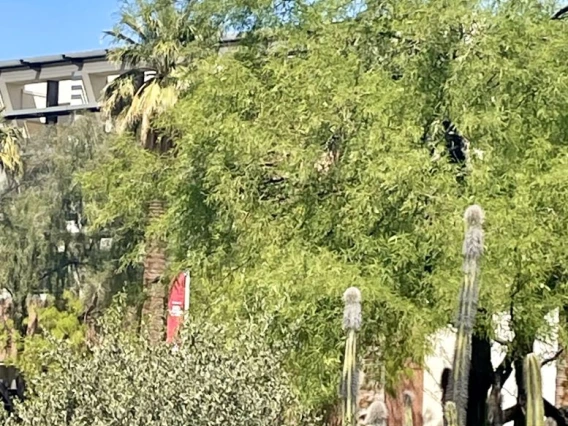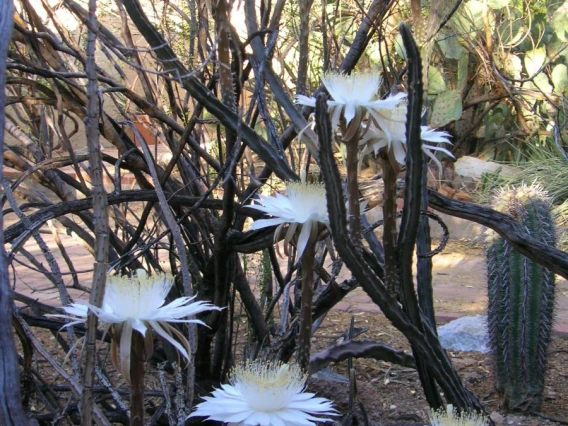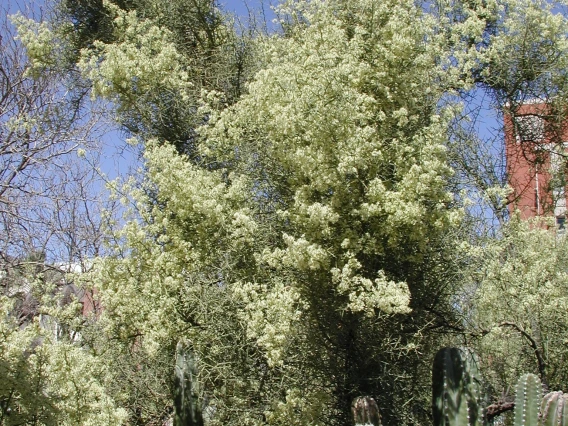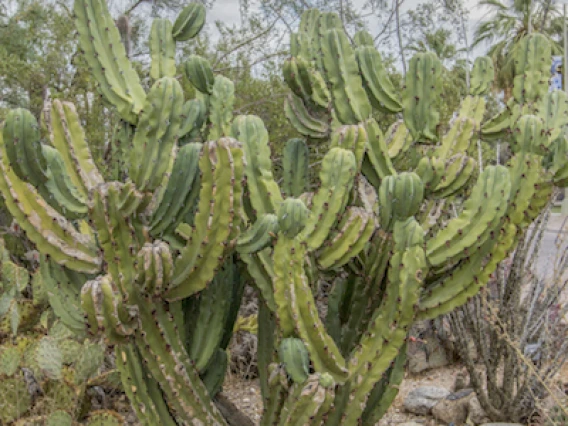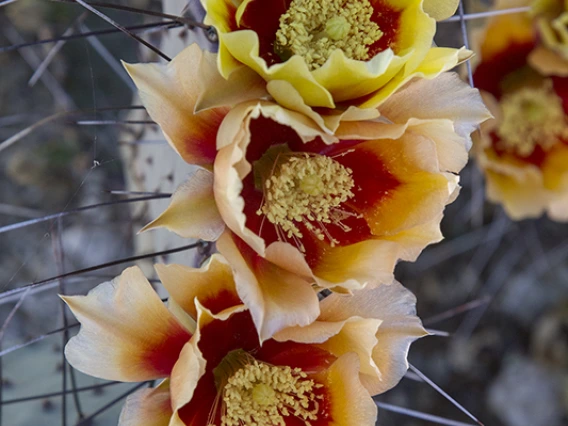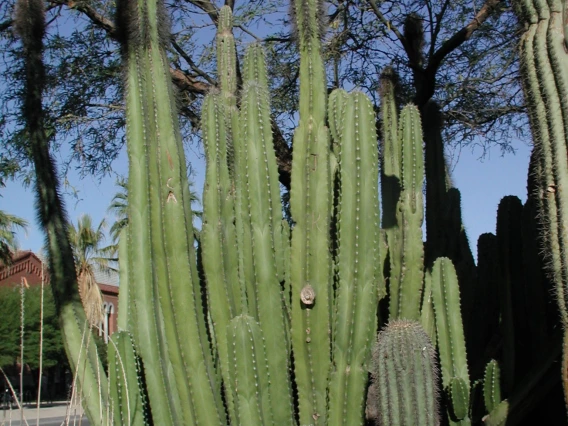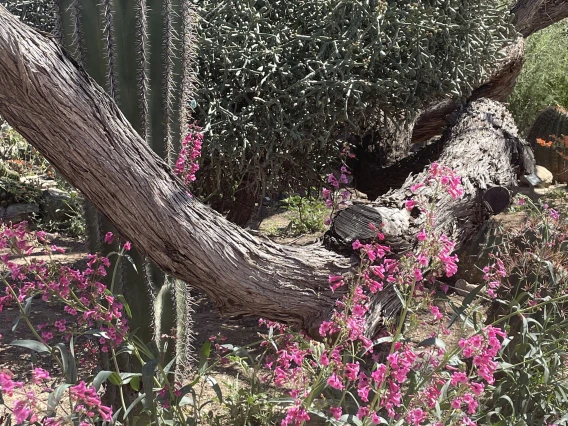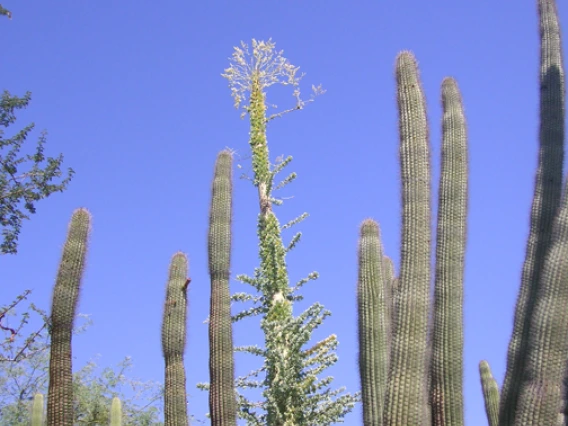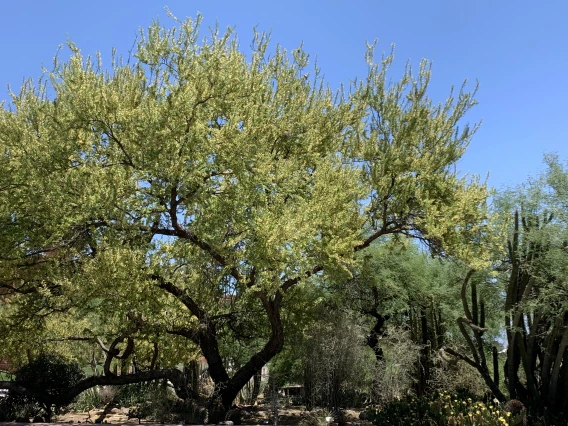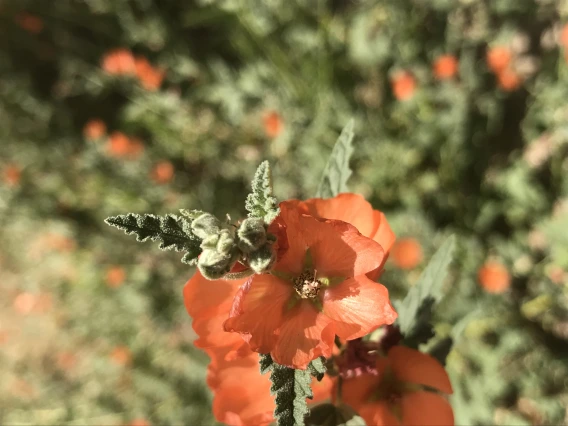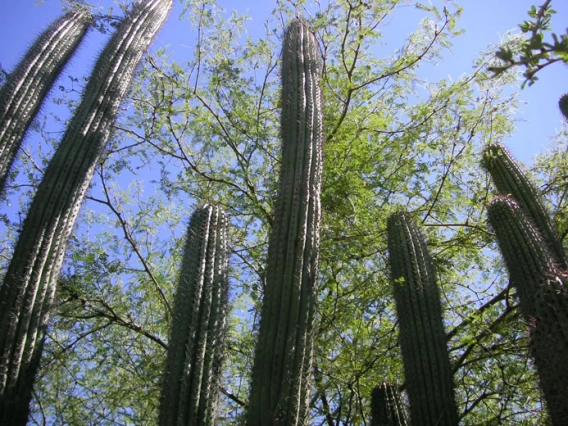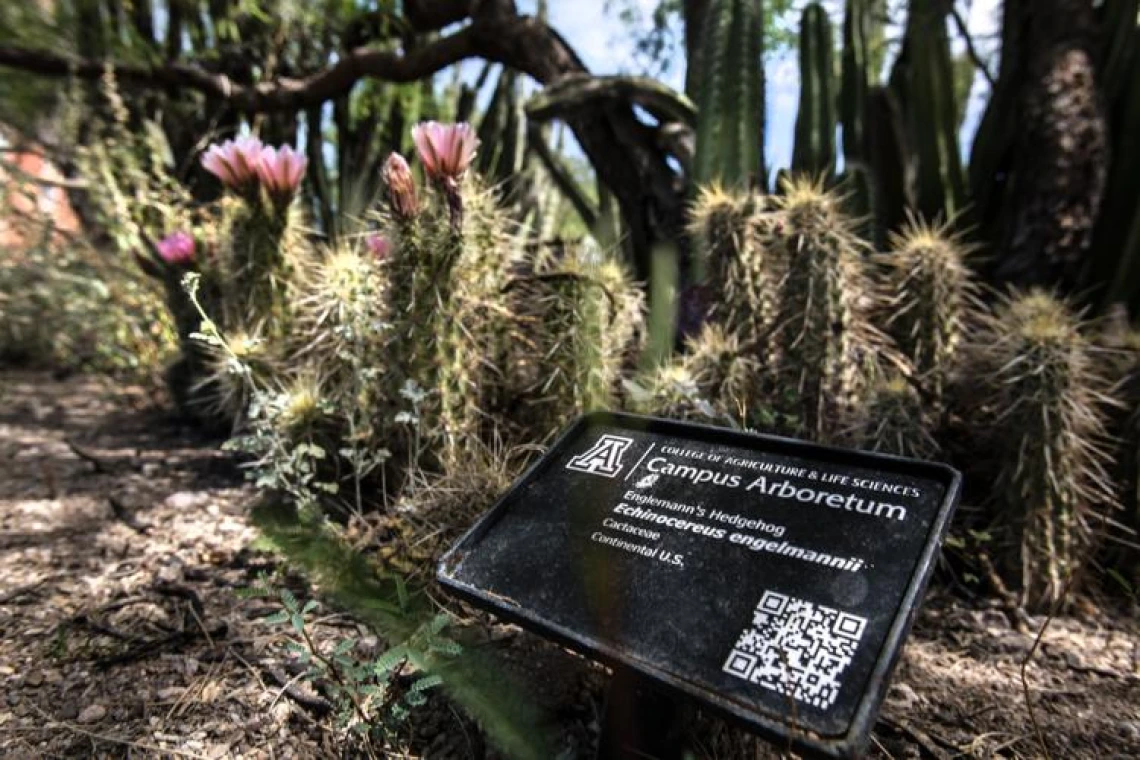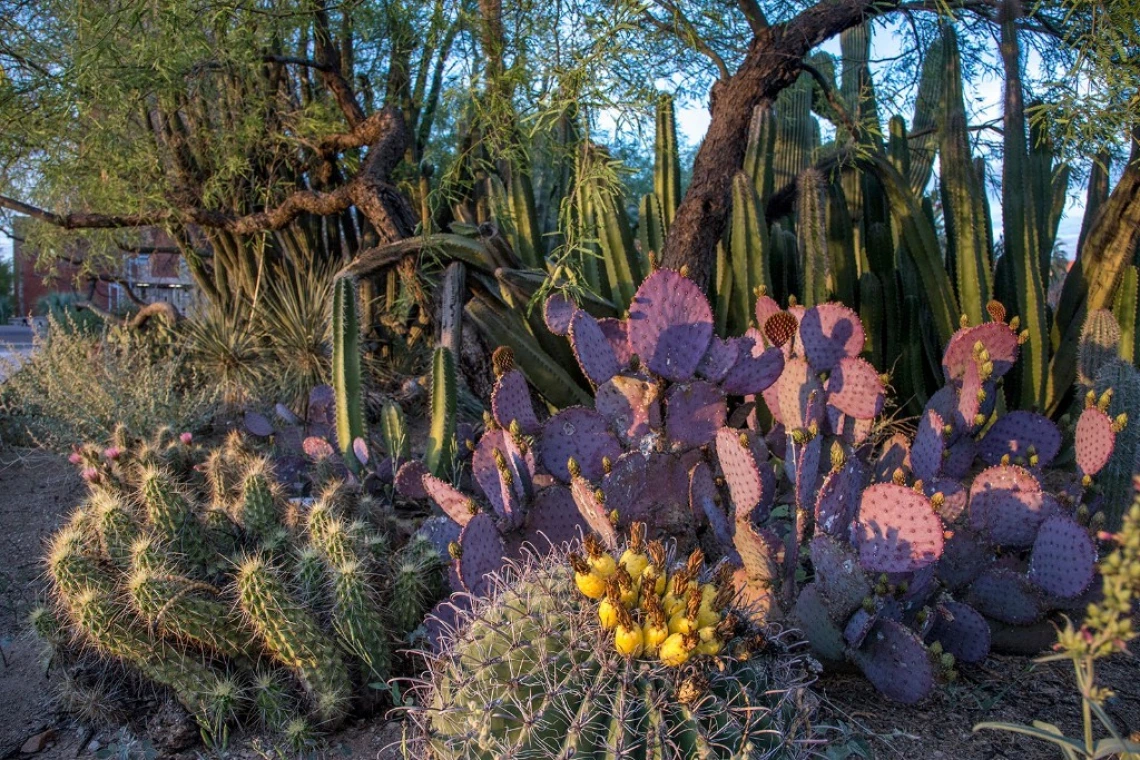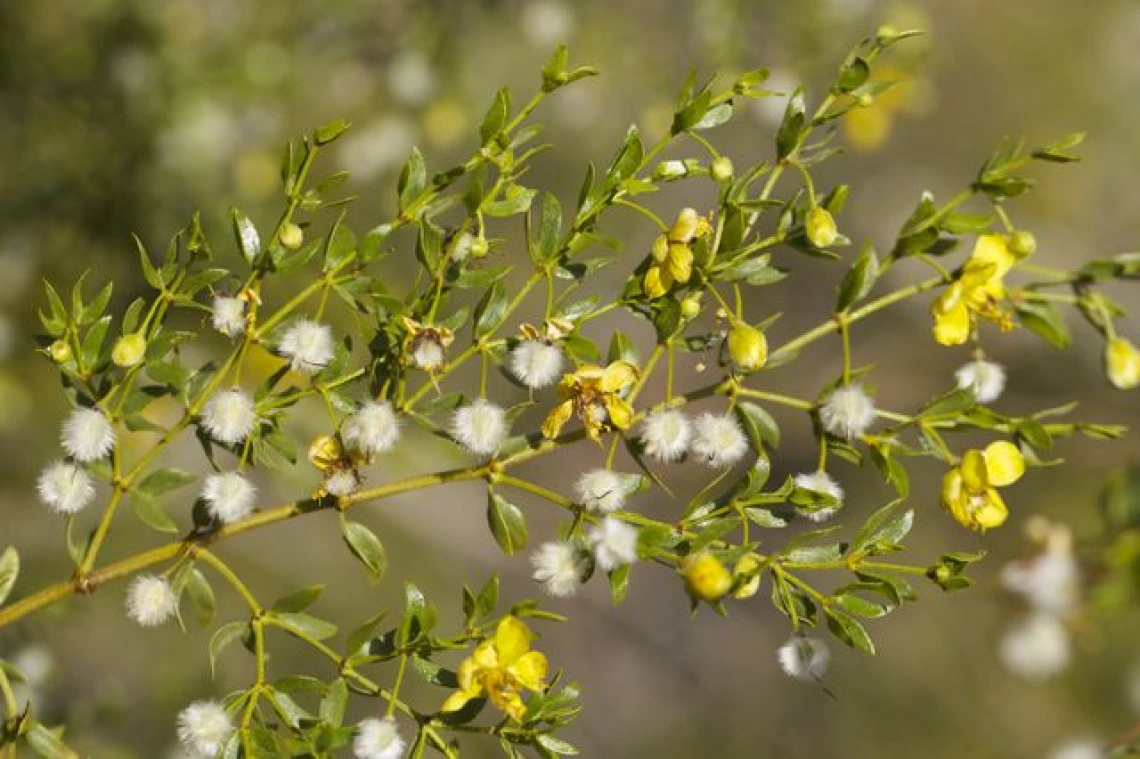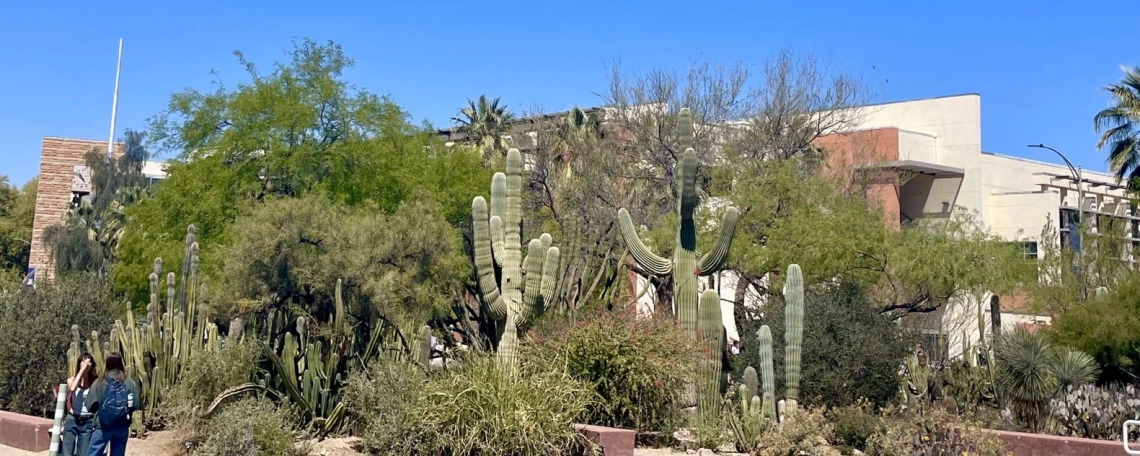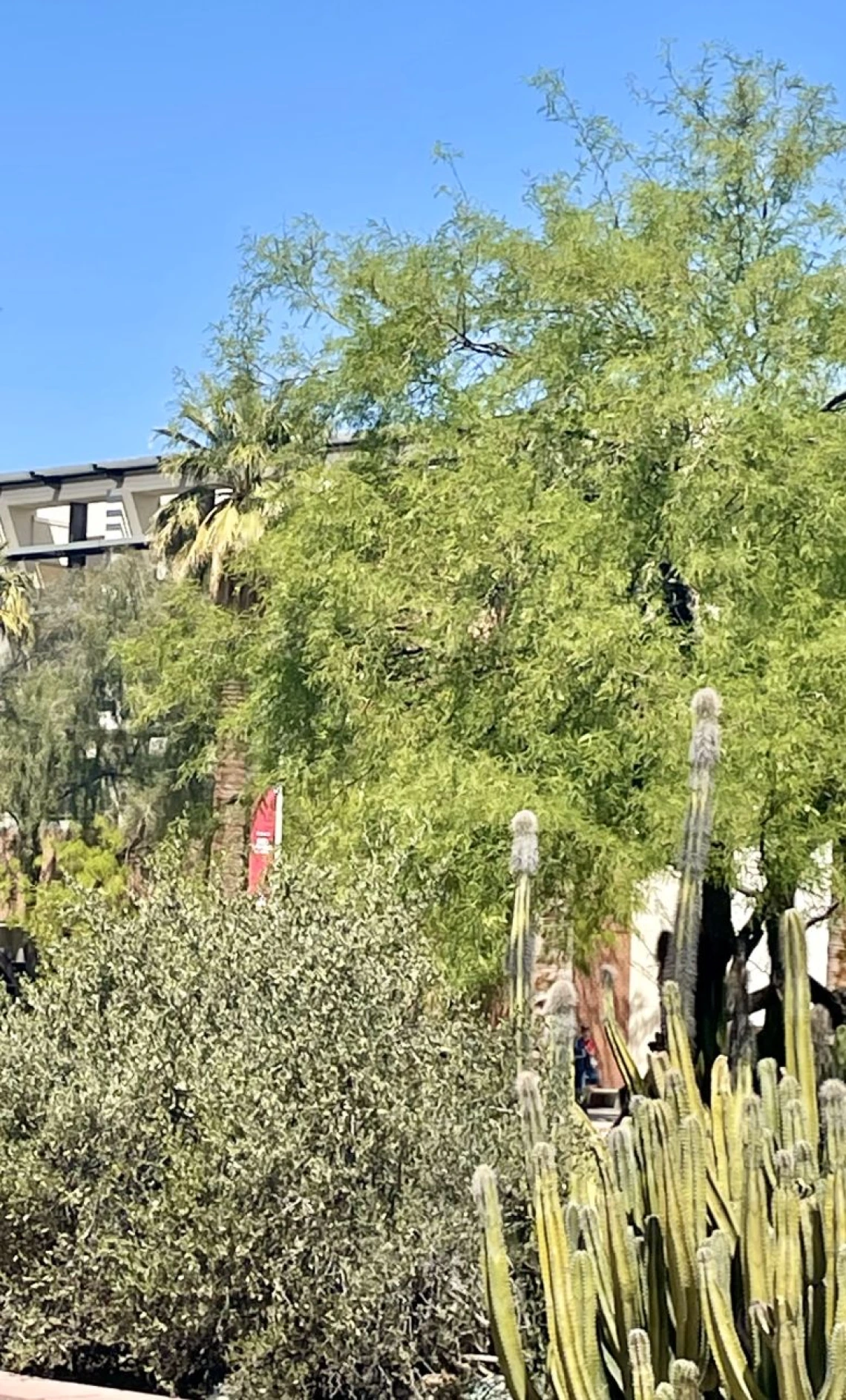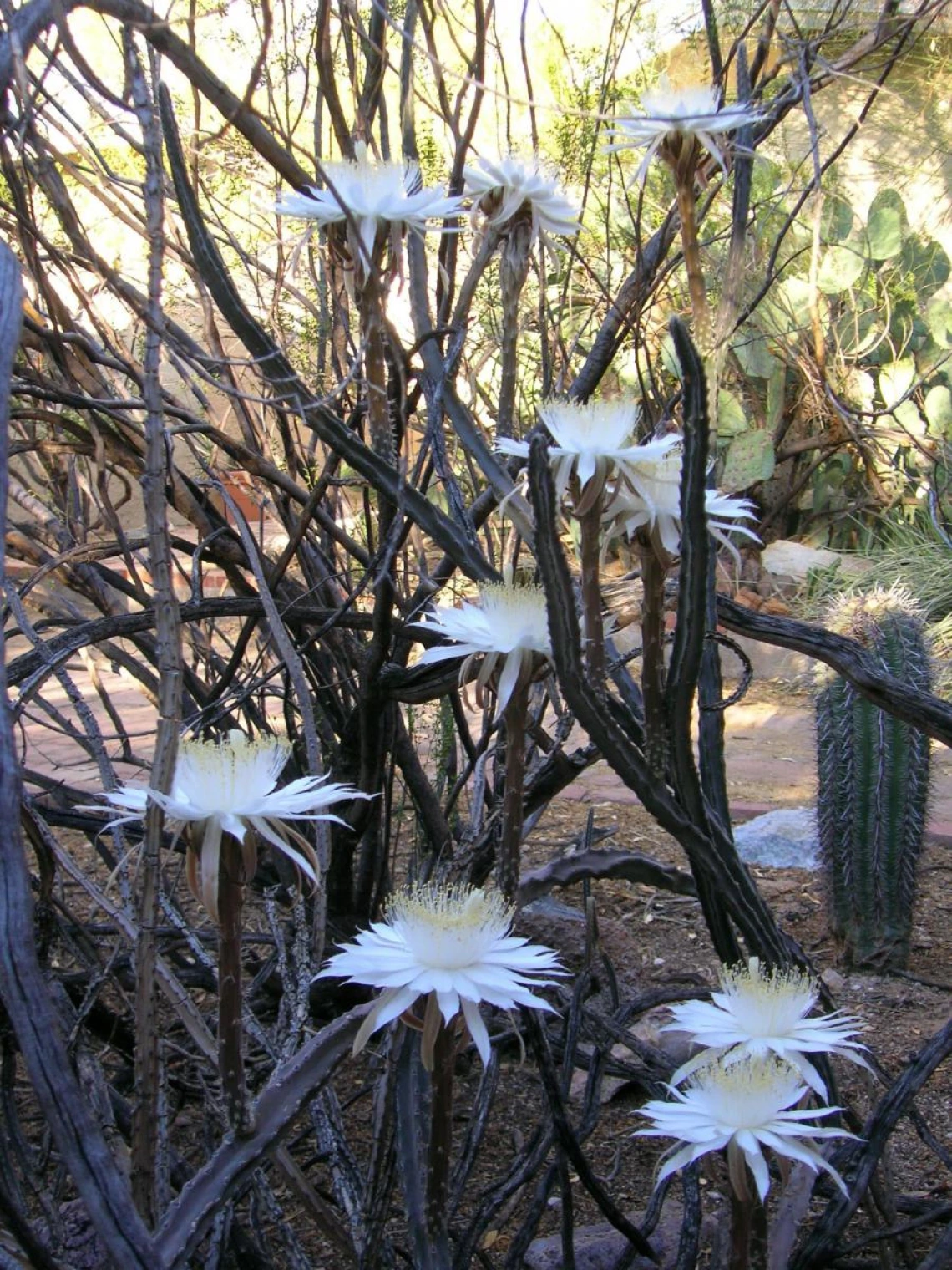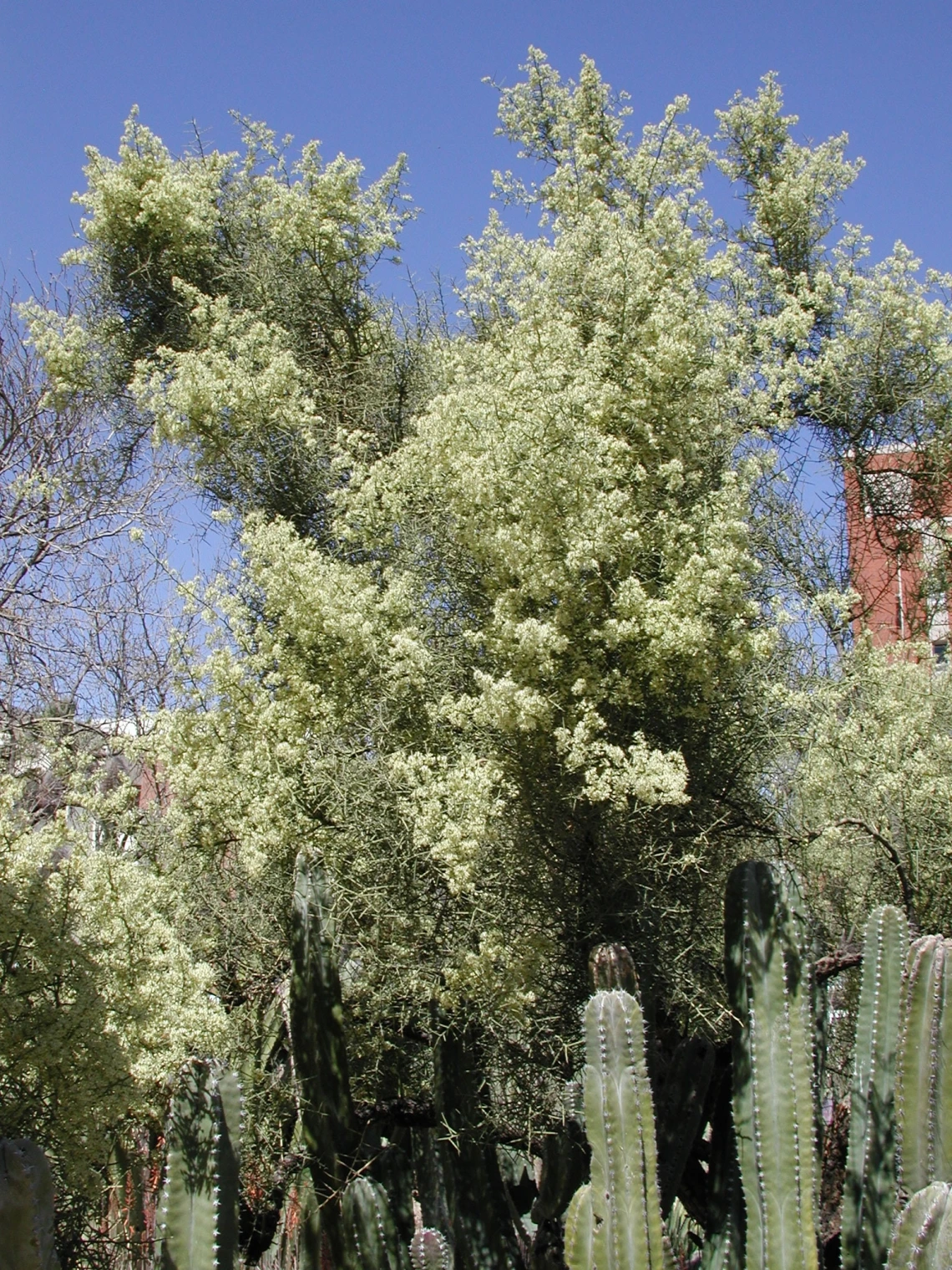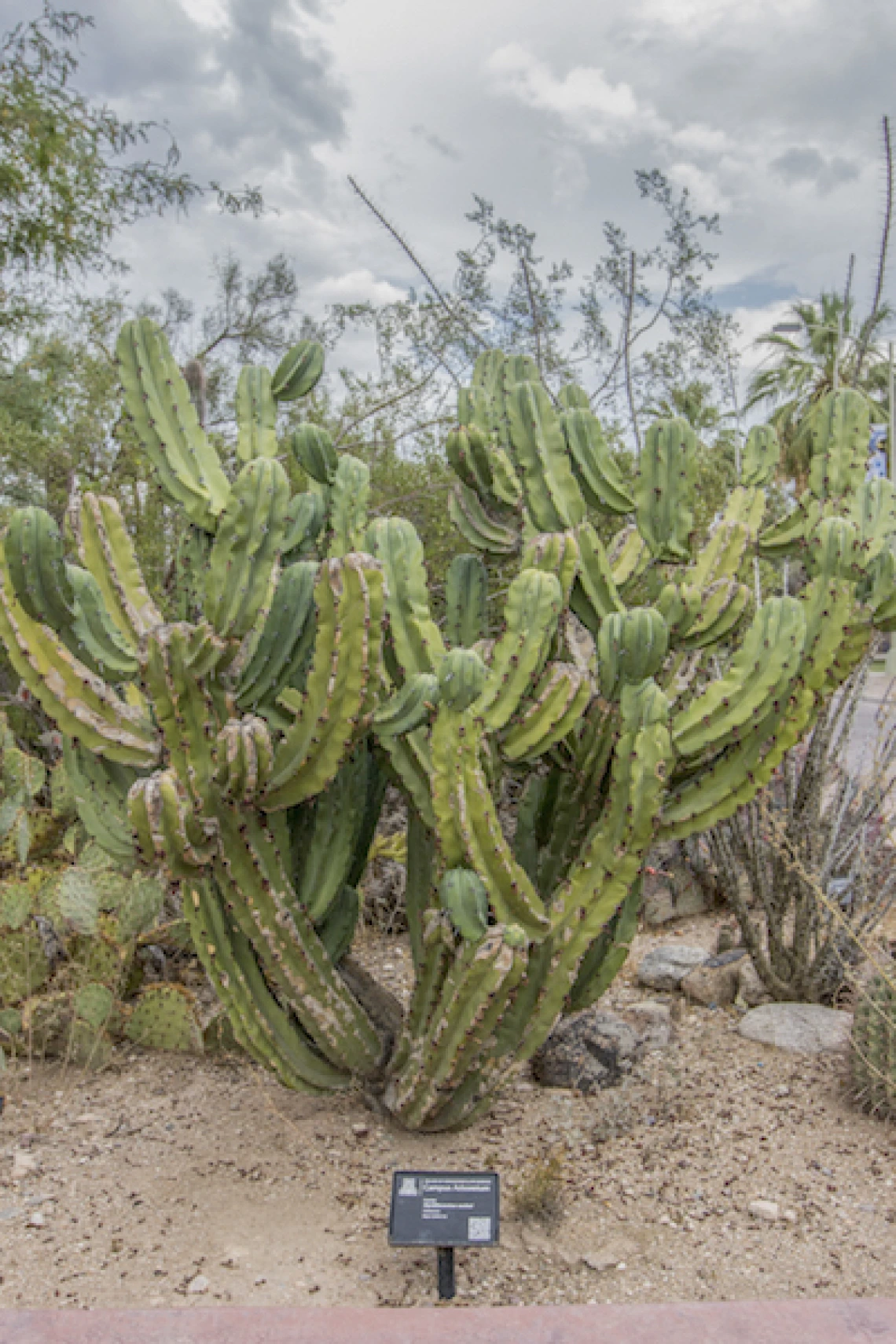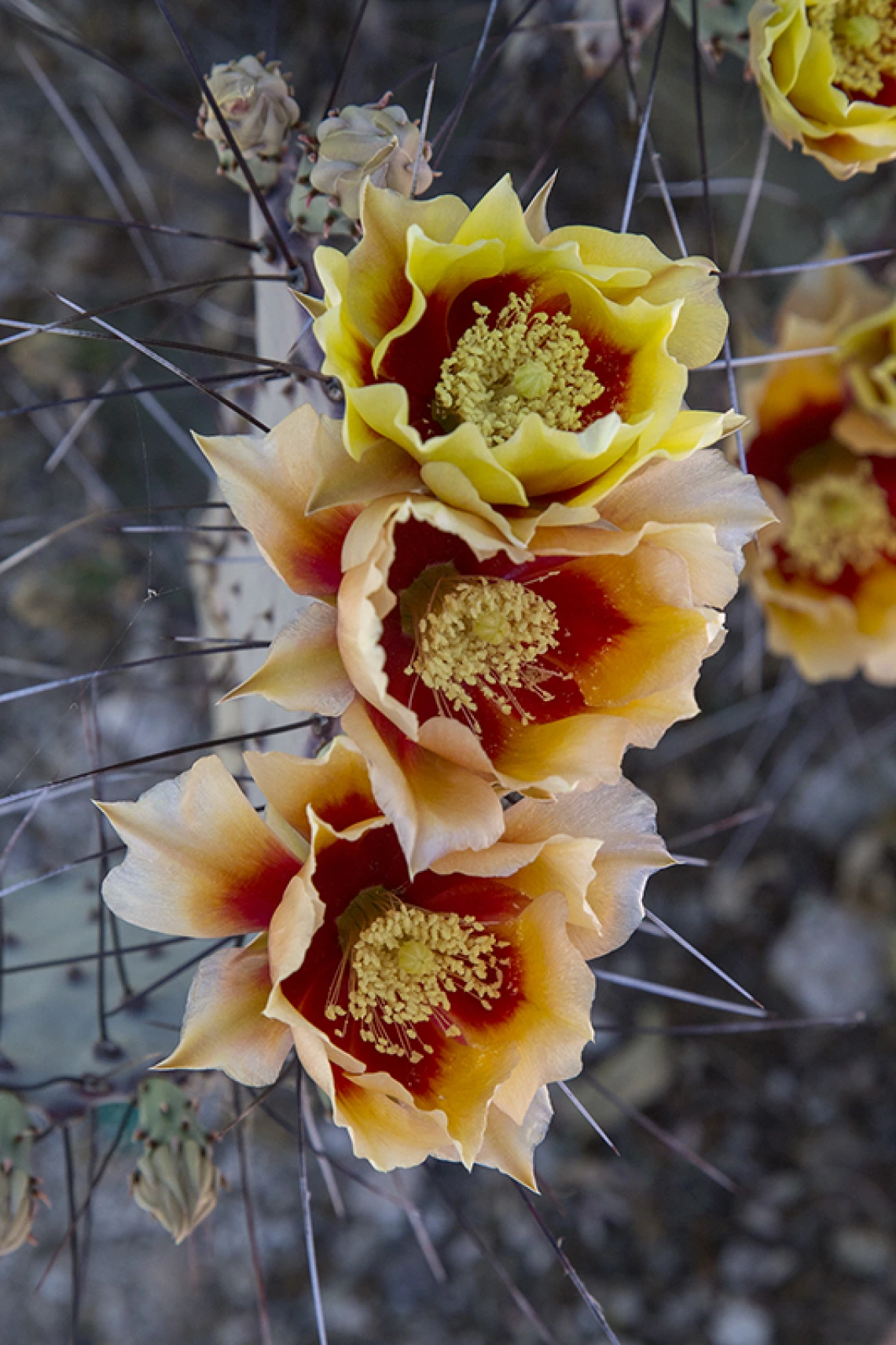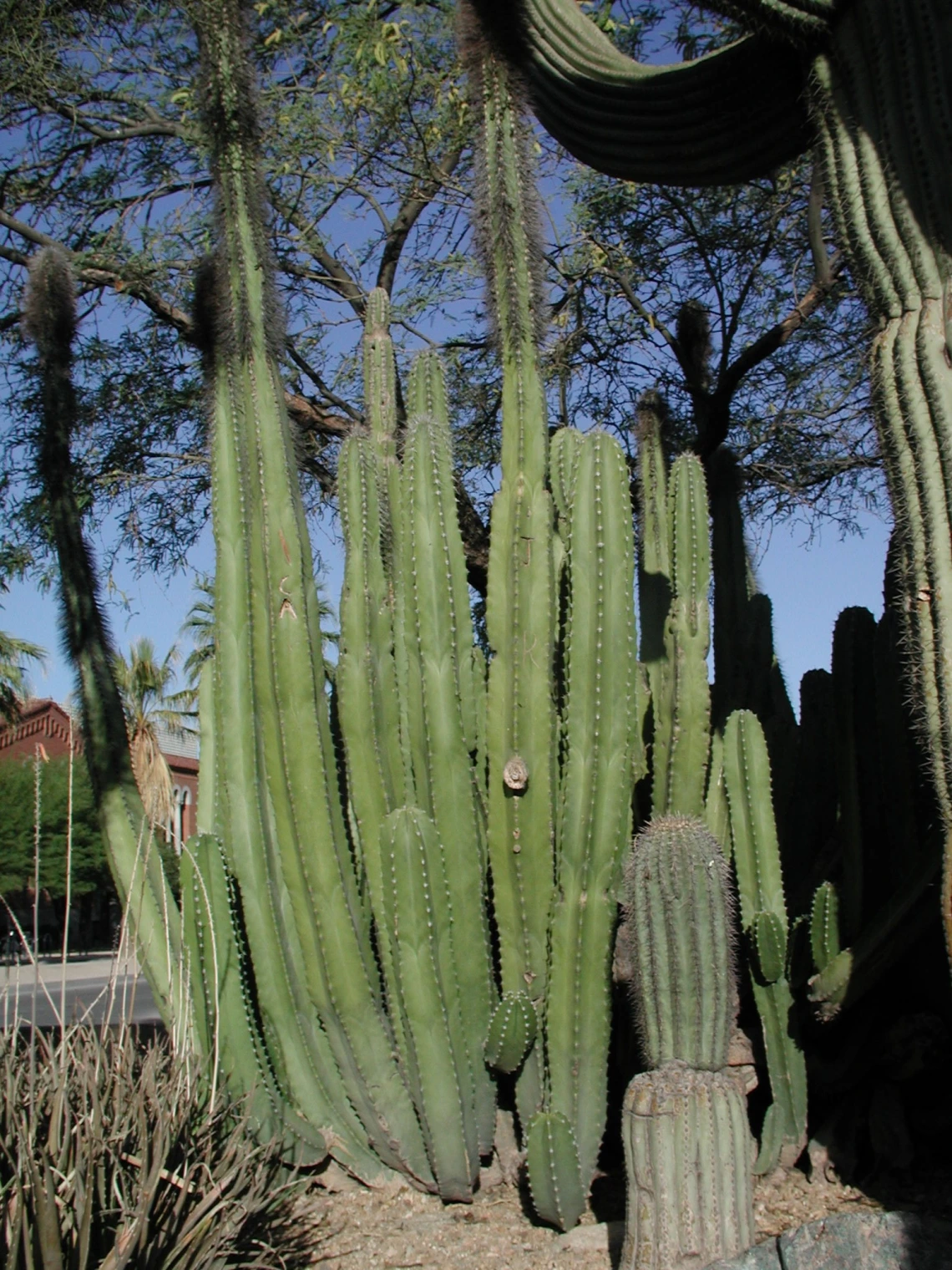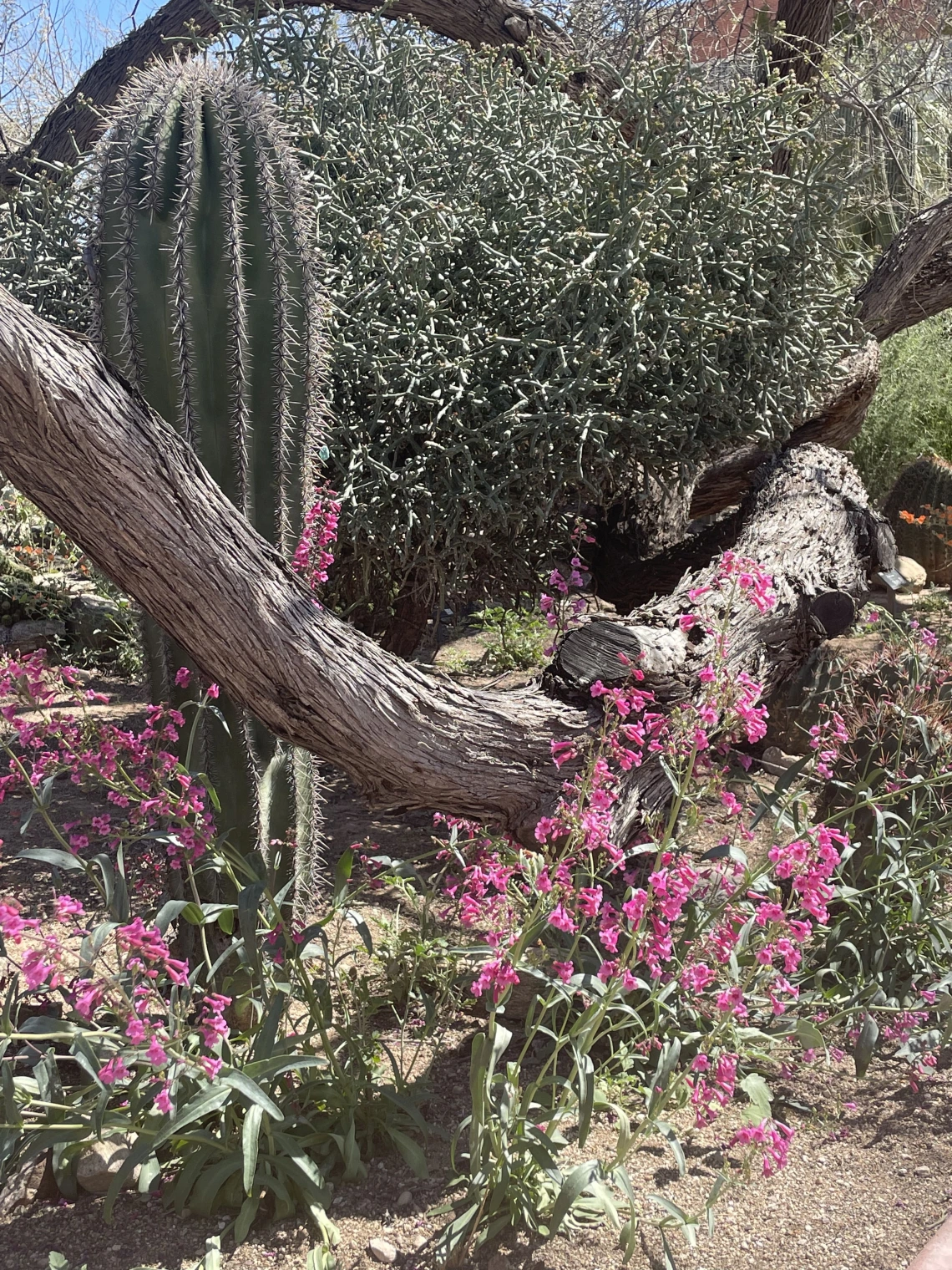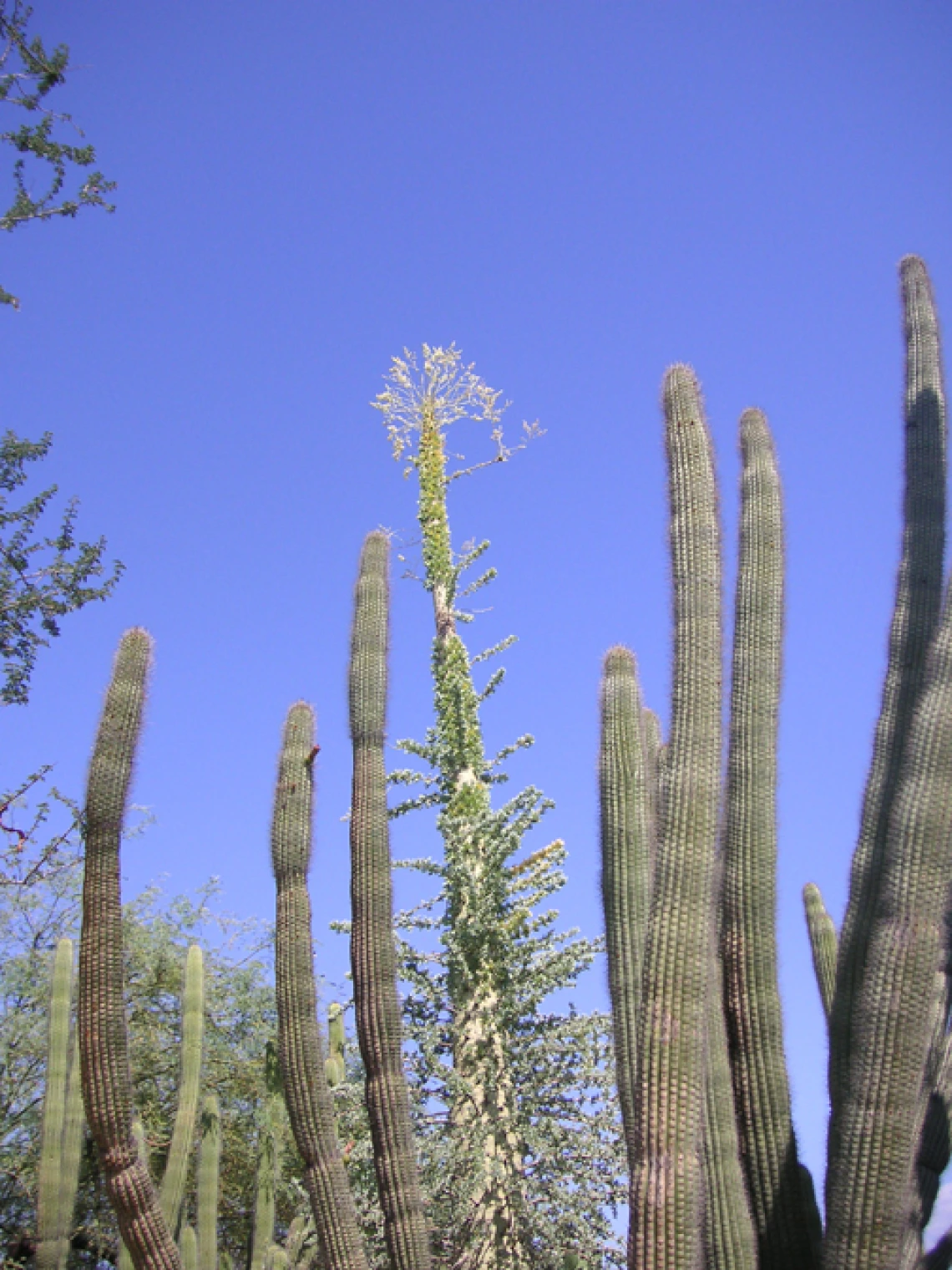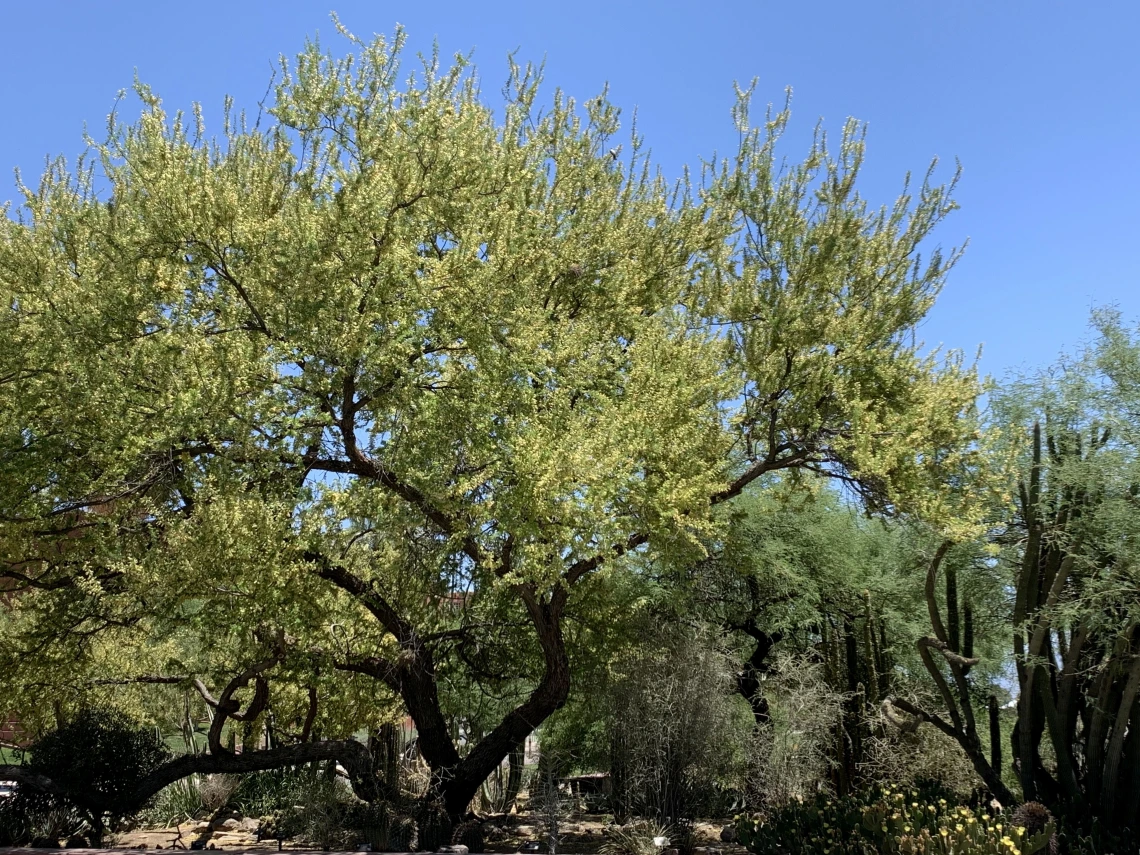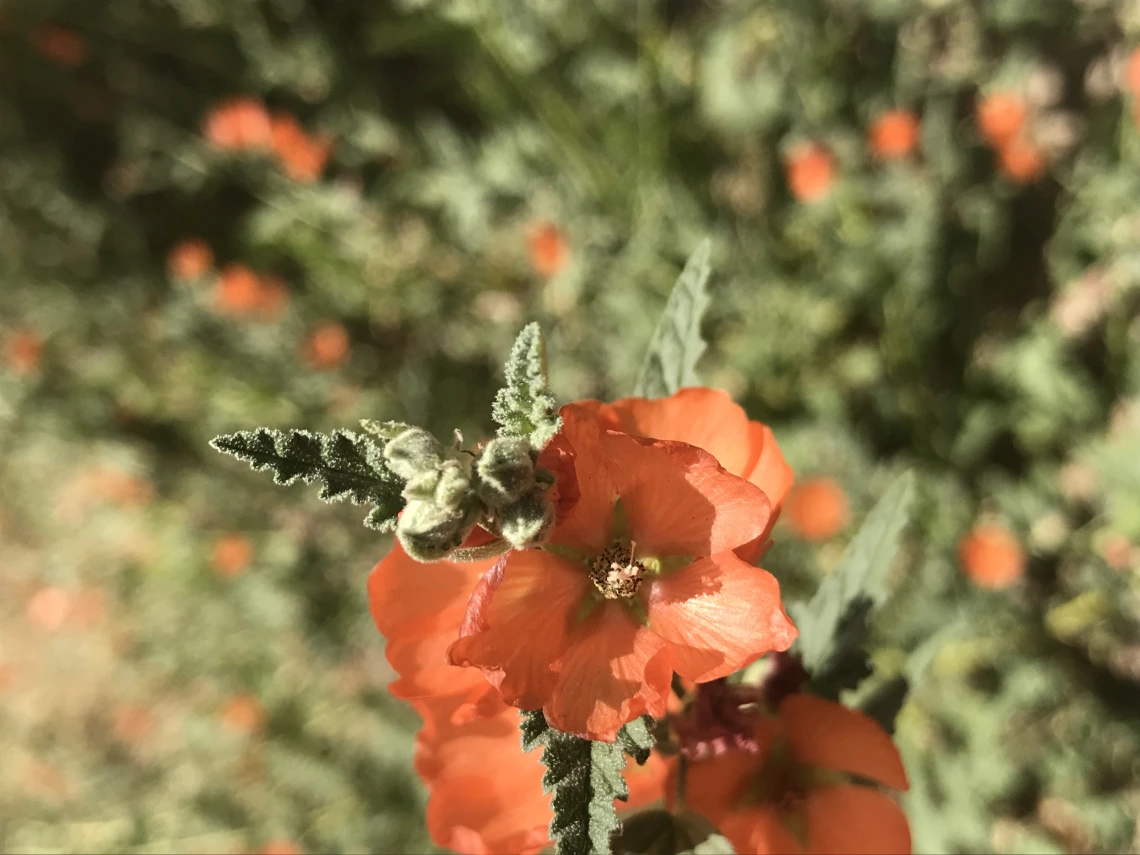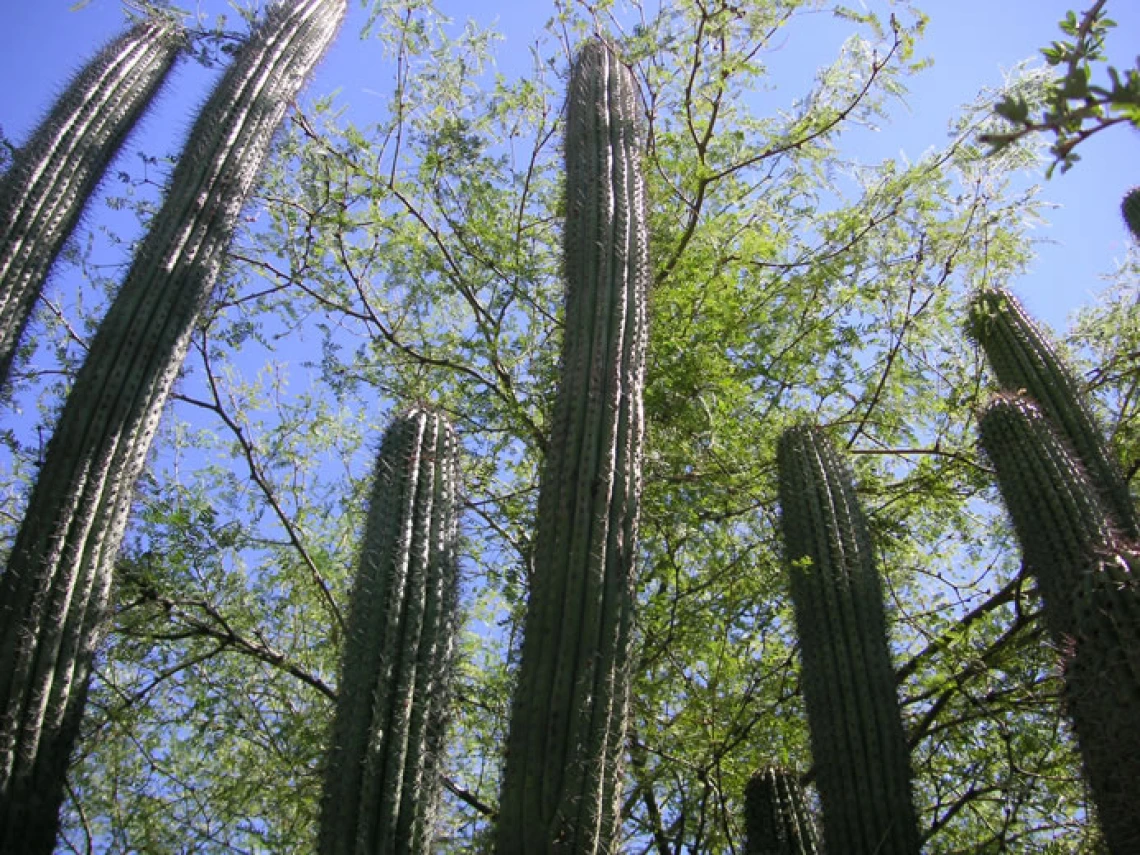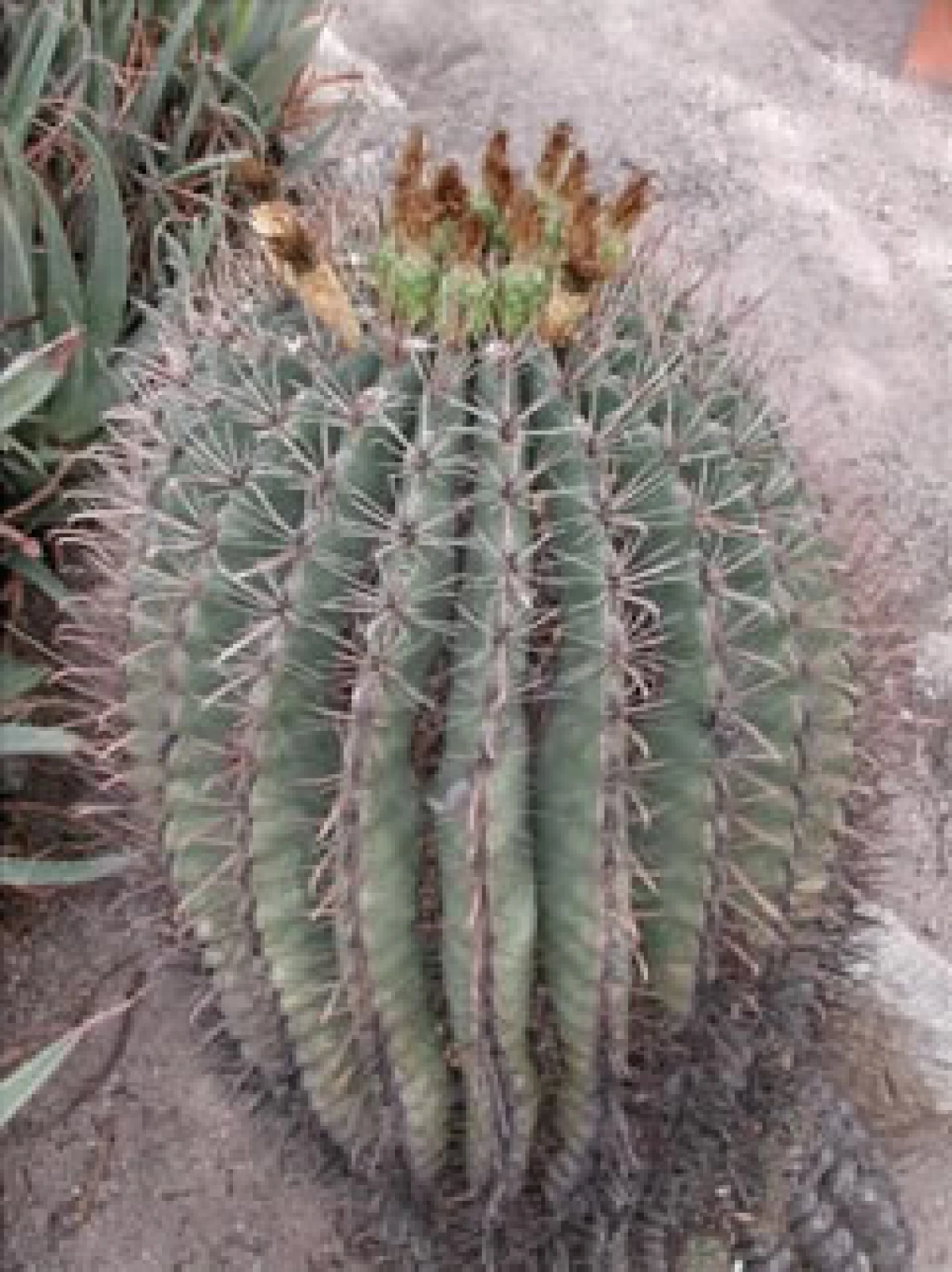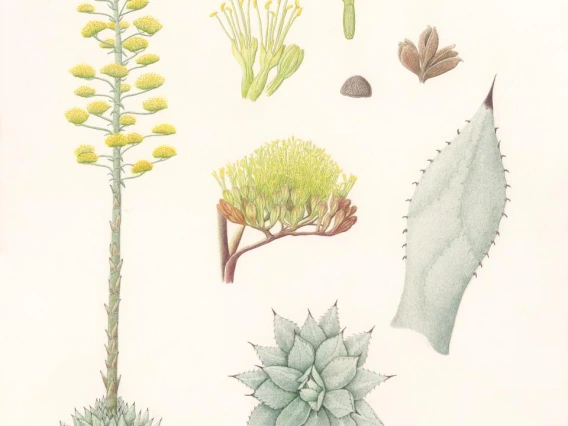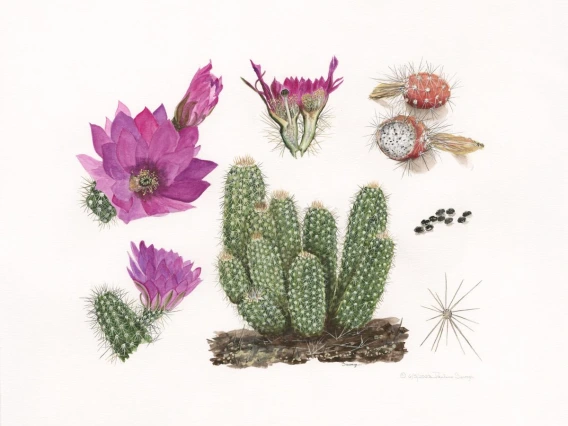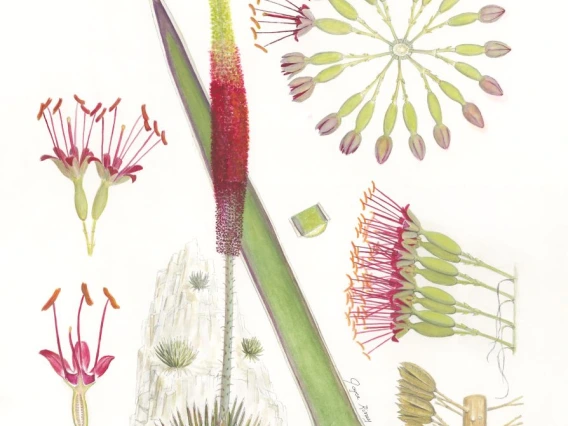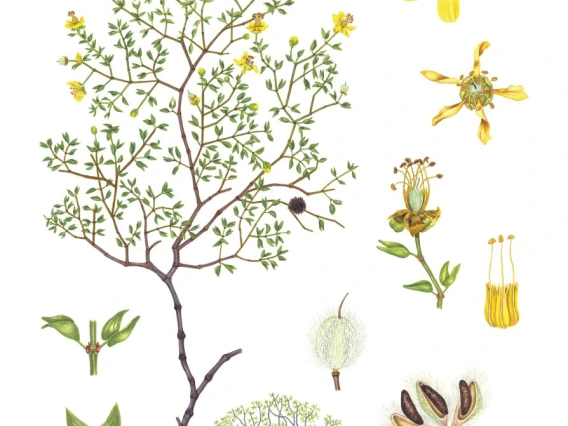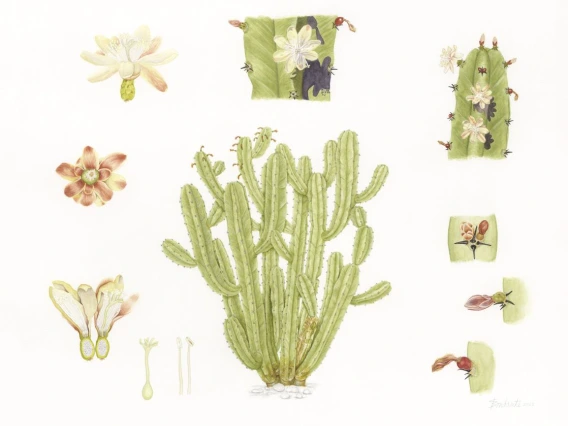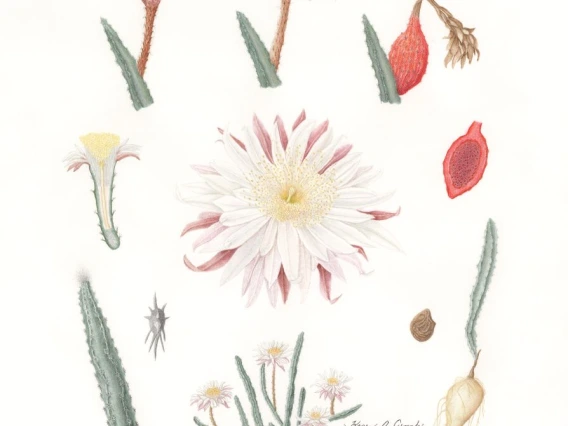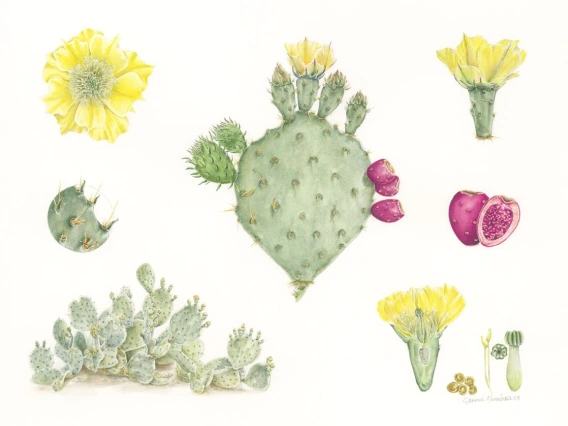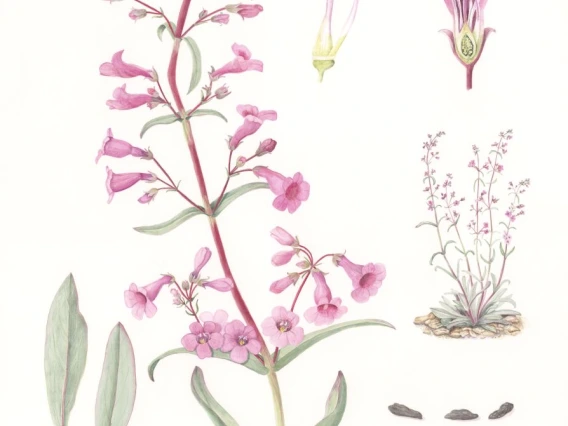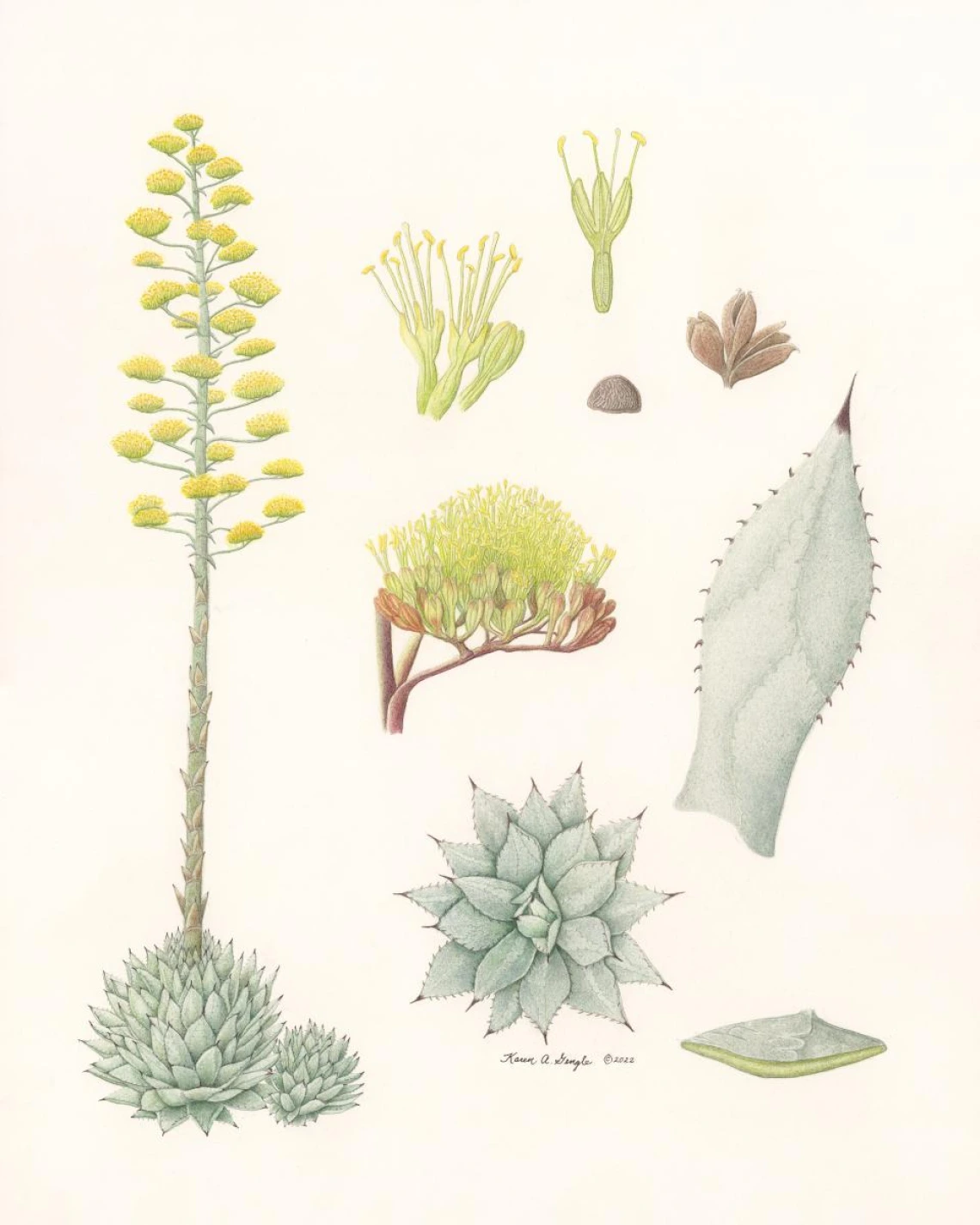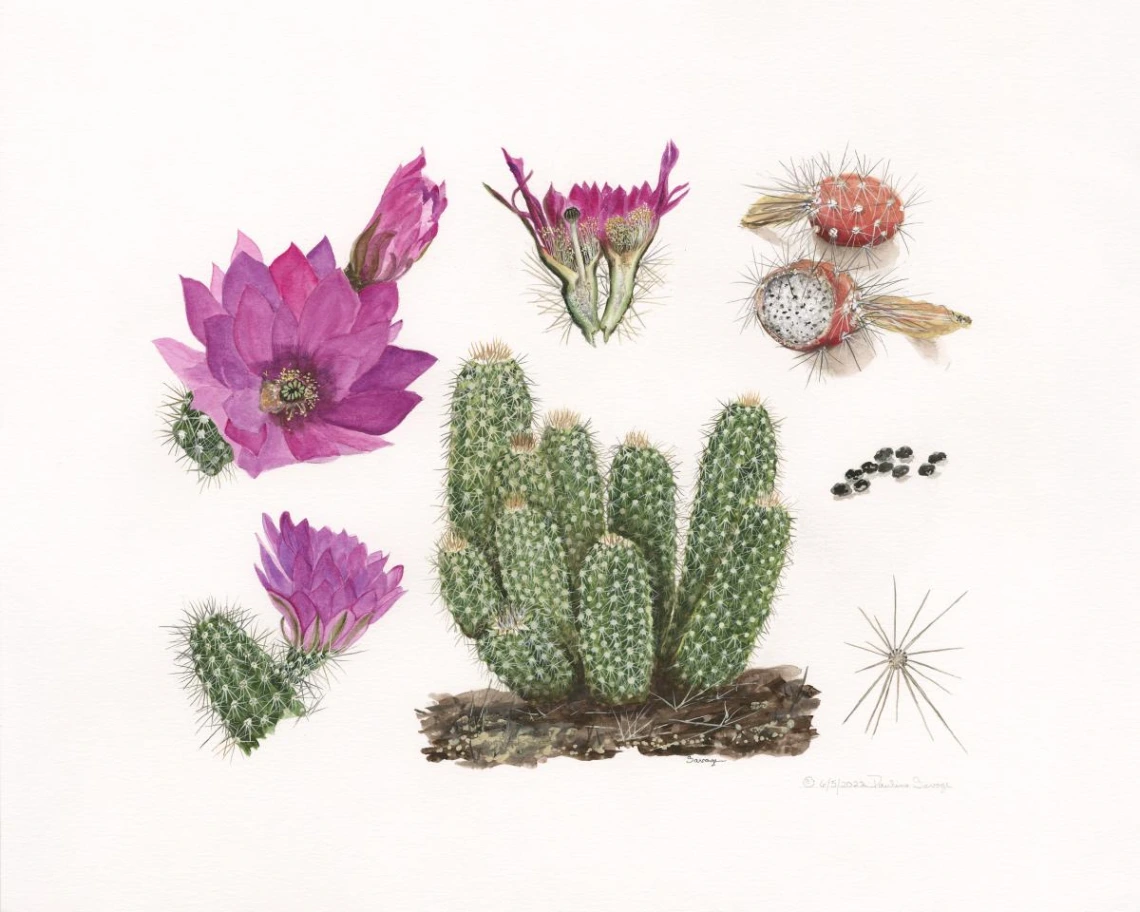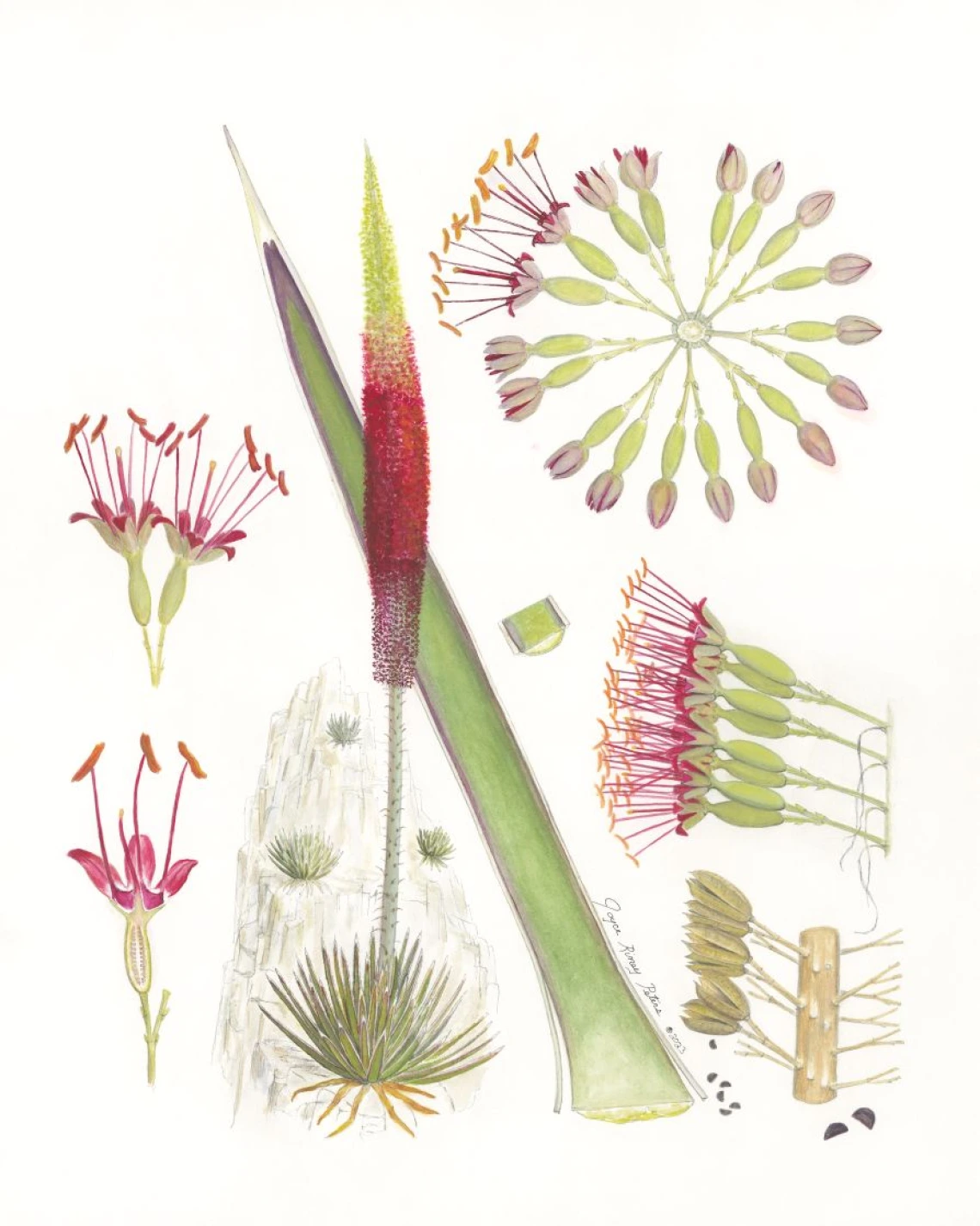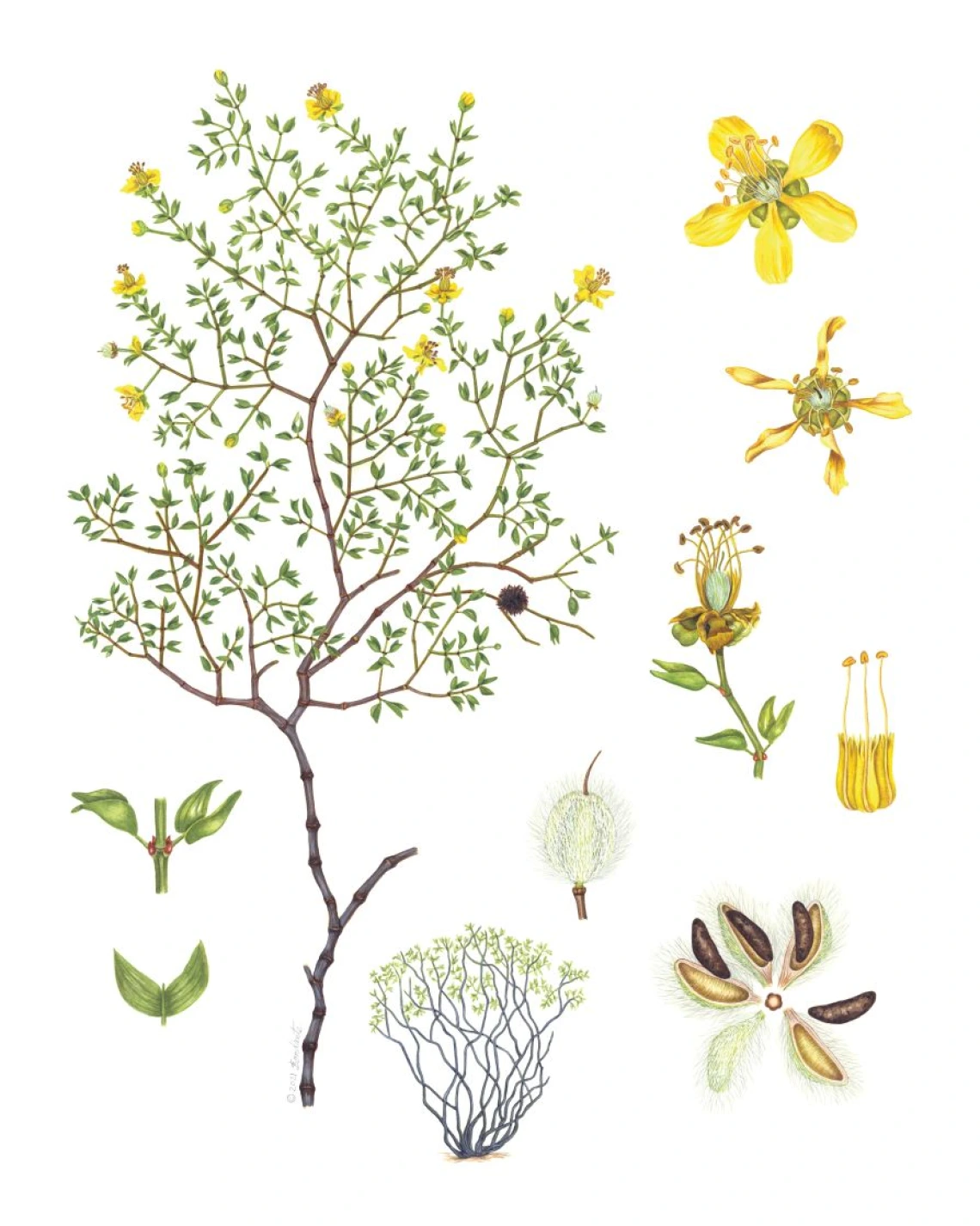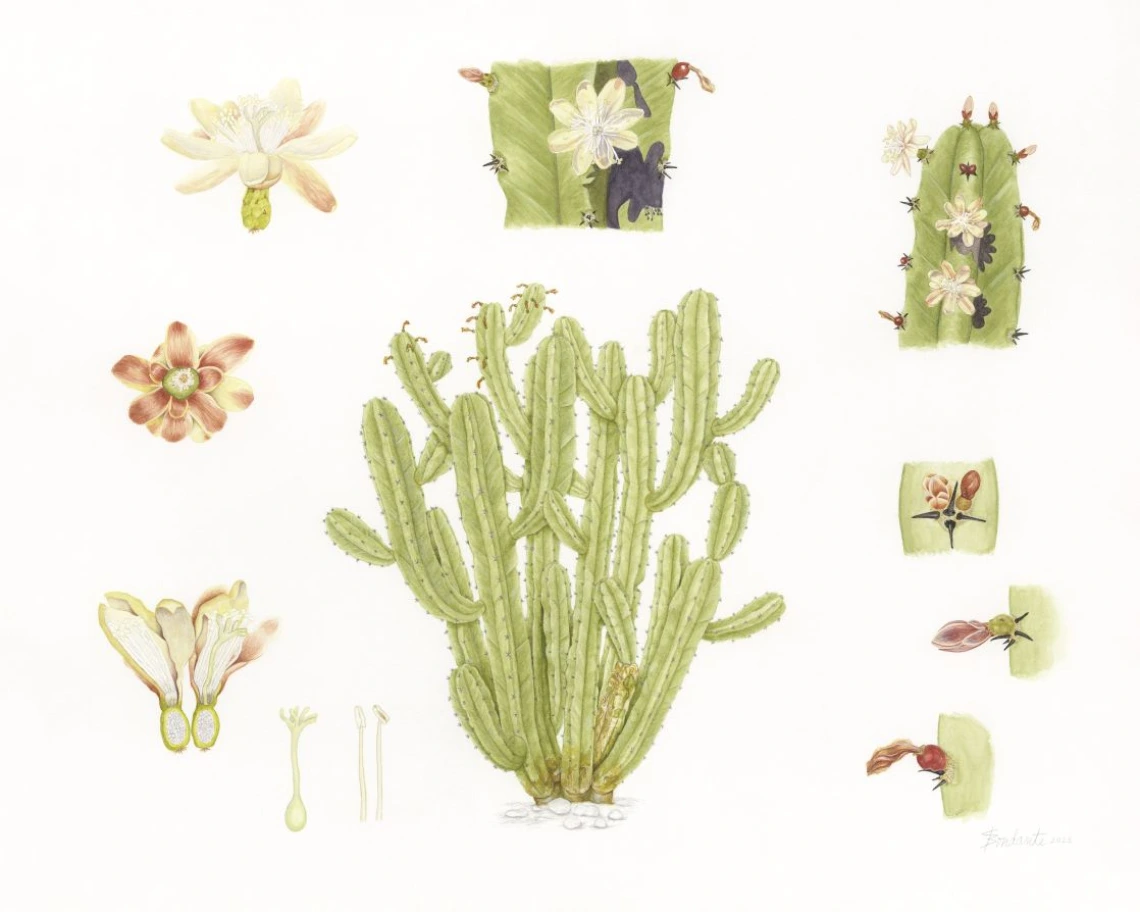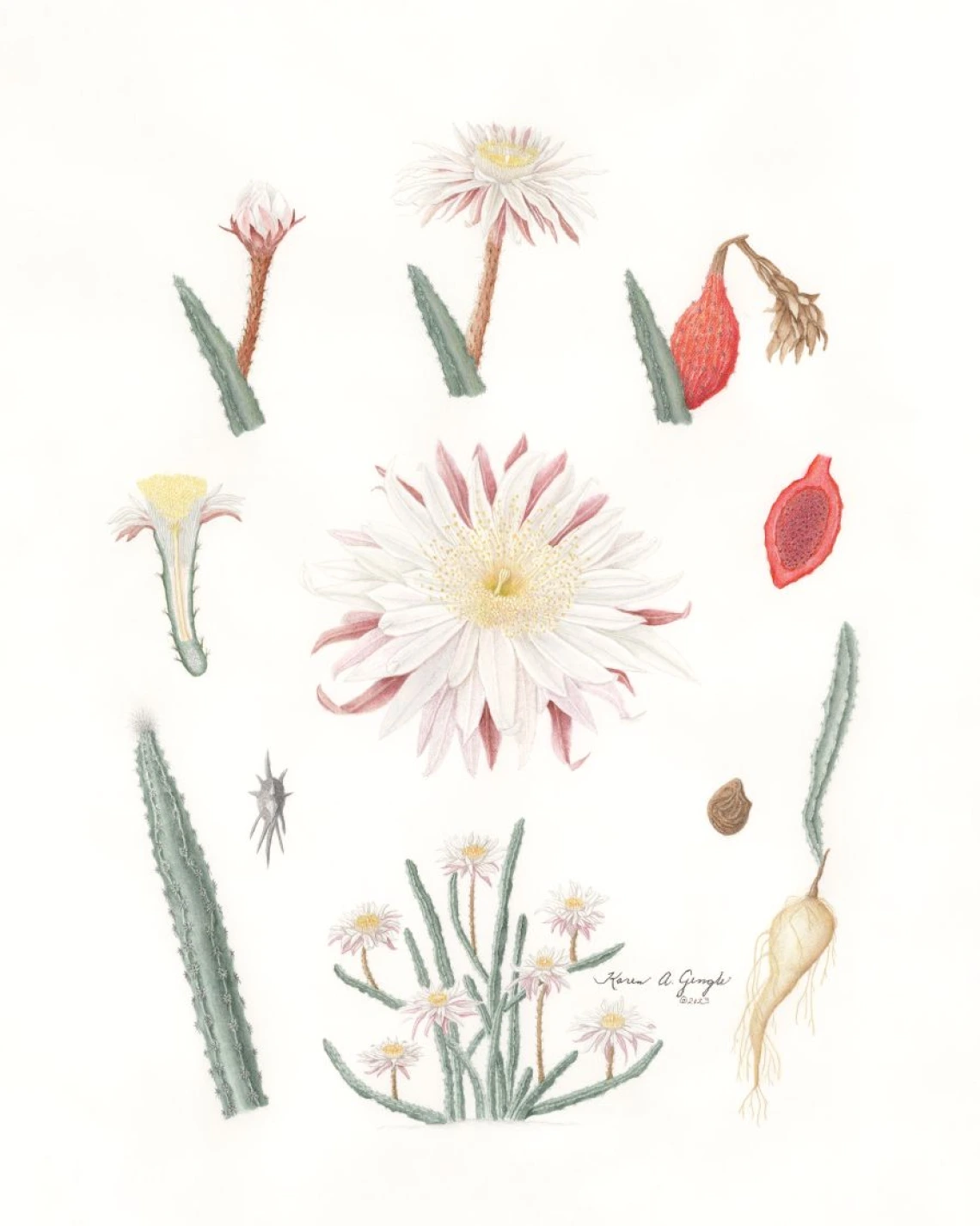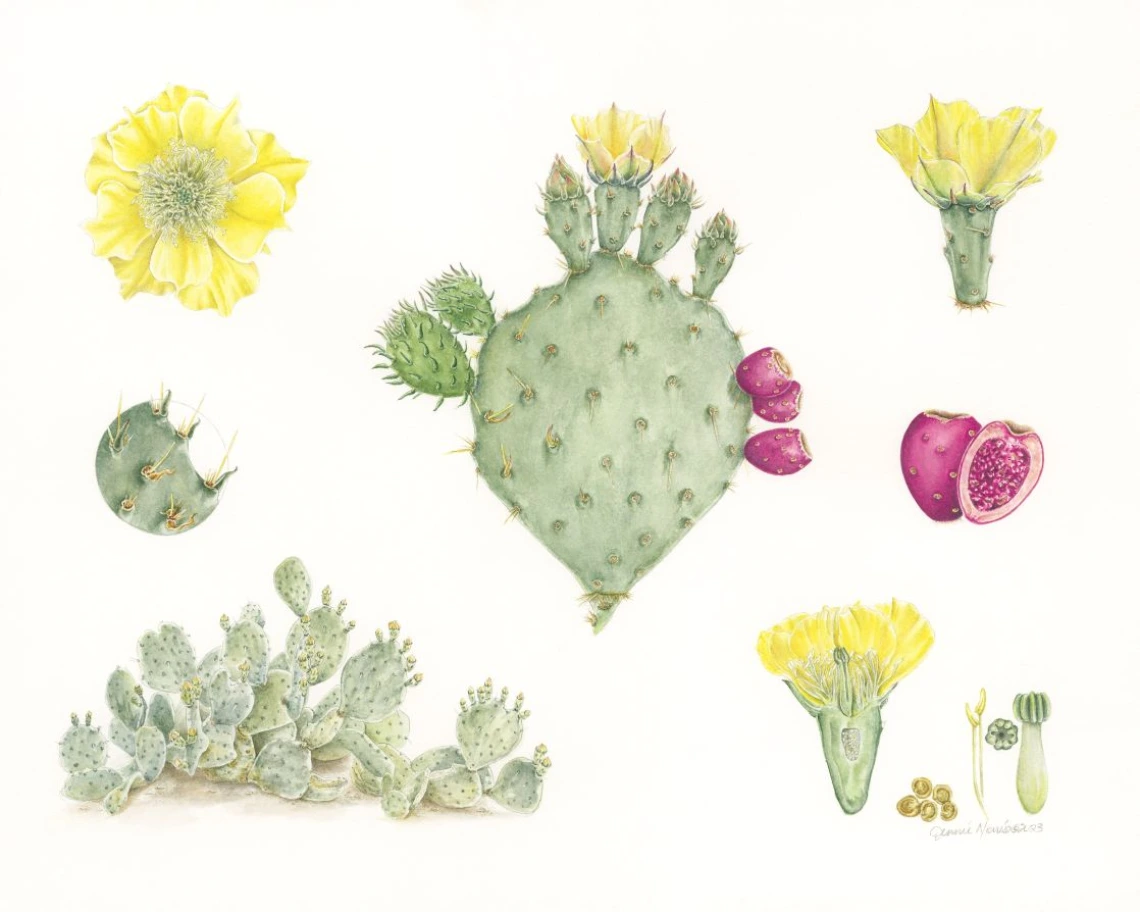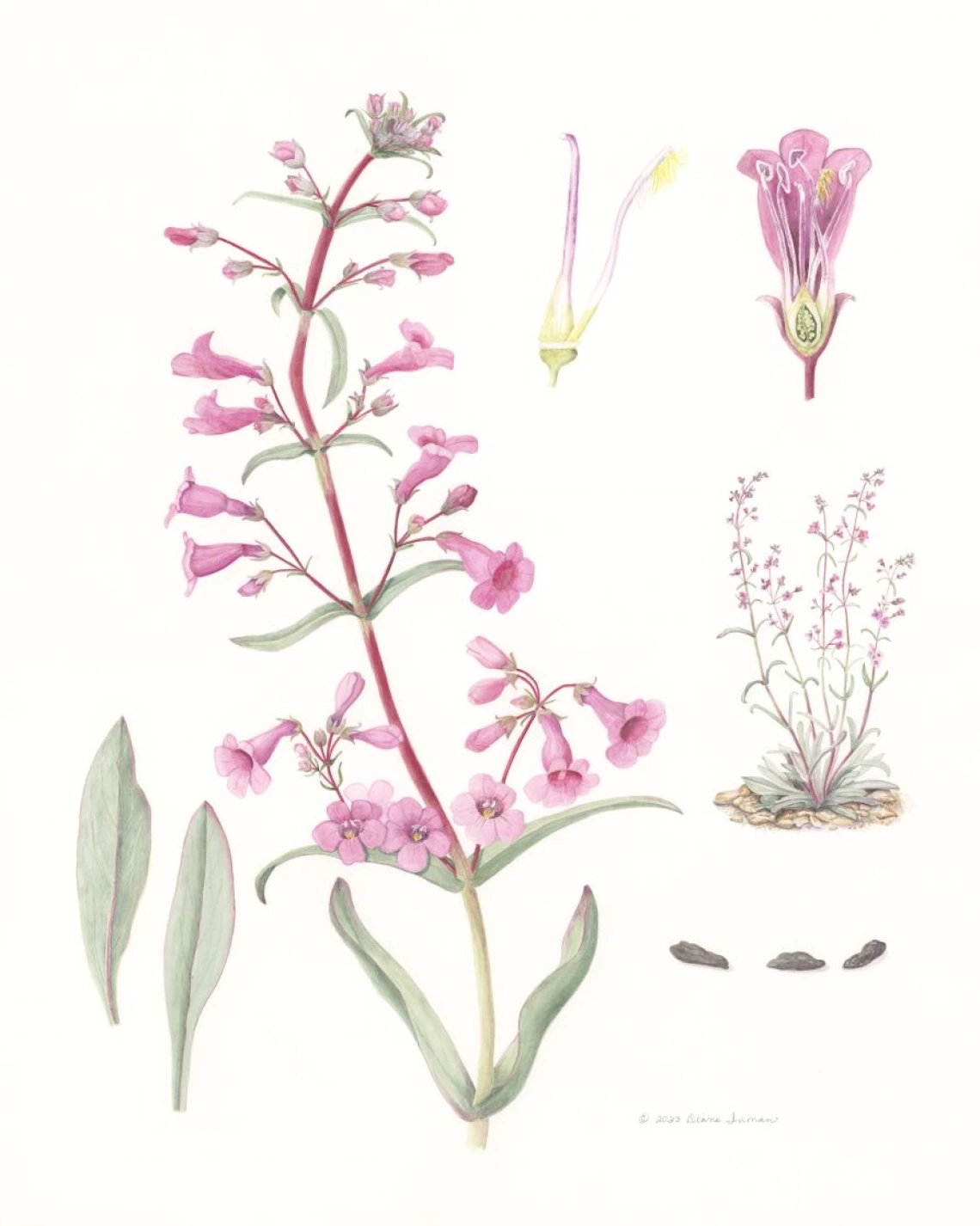The Joseph Wood Krutch Garden
on the University of Arizona Campus Mall
This garden was dedicated to Joseph Wood Krutch in 1980, and stands as a monument to his love for the southwest and his deep appreciation for nature. The Krutch Garden is a living connection to the past and an ongoing example of sustainability since 1891. Throughout its history the garden has evolved and moved locations several times. At the turn of the 20th Century, the garden was located on the west side of Old Main was home to well over 600 species. Later, in 1929, the garden was moved under the direction of UA President Homer Shantz, to its current position on the east side of Old Main. One of the most prized species to take root in the Krutch Garden was the boojum tree from Baja California. Eight of these trees were obtained on a Carnegie Desert Laboratory expedition and added to the garden for their distinctive, towering, tapered, architectural appearance. The boojum tree is now protected by the Mexican government and listed as a rare species. Almost all other plants in the garden are Sonoran natives including, mesquite, catclaw acacia, creosote and wolfberry along with cactus species like saguaro, organ pipe, senita, cholla, barrel, and prickly pear.
During the 1950s, construction on the new Student Union led to the relocation of a few species as well as a consolidation of the more important specimens into the center of the expansive garden. Over the next few decades, this trend continued as the mall was covered in turf. The stoic remnant of this once extensive garden was preserved and named in honor of Krutch Garden.
Through the years, the garden has faithfully provided a place to connect with nature, providing shaded seating, relaxation and the restoration that comes from access to a natural space and the interaction with the birds, lizards and other creatures who find habitat in the garden. The garden beloved for its natural aesthetic, communicating our unique sense of place in the Sonoran Desert. It is appreciated by scientists and naturalists who appreciate the complexity and efficiency of the native plants residing there. In the dry heat of June, before the monsoons, the Sonoran desert can certainly seem like a harsh environment but the native plant species there thrive in the intense sunlight, heat, and drought, fearlessly blooming in foresummer confident in the preparation of many thousand years of adaptations in this place. The creosote bush can survive for up to two years with no rain and many cacti and succulents bloom in June, long after the winter rains. In time, the plants and animals in the Sonoran Desert have been shaped by the environment, and work together in the most biodiverse deserts in the world.
Human inhabitants have also been a part of this evolutionary process. Early hunter-gatherers and agriculturalists understood and respected the relationships between the plants, animals, climate, and the natural rhythms of the Sonoran desert. Native plants were a primary source of both food and medicine for people, and so these plants were carefully selected and propagated to ensure adequate supply. Much of our medicine is derived from compounds found in plants, our clothes are made from their fibers, that their fruits, stalks, leaves, and roots provide nourishment, for humans and other animals, and habitat for innumerable species of wildlife. We may recognize moments in which we are searching for an unnamed need to connect to our environment. It’s only natural. However, our connection with nature requires cultivation and begins with knowledge. Joseph Krutch said: “It is not ignorance but knowledge which is the mother of wonder.” And so, this garden offers us a rare opportunity to learn by experiencing nature in the middle of the city and as Krutch declared "there is all the difference in the world between looking at something and living in it" (The Desert Year,1951)
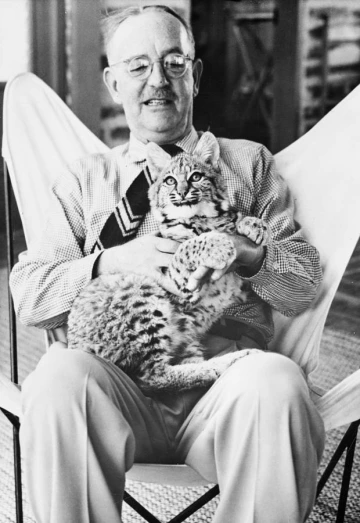
“If we do not permit the earth to produce beauty and joy, it will in the end not produce food, either.”
~Joseph Wood Krutch
A PEEK AT THE KRUTCH GARDEN PLANT ILLUSTRATIONS
Framed prints of these illustrations are available for exhibition.
Contact the Campus Arboretum to inquire about loan of the prints for exhibition within Arizona.


